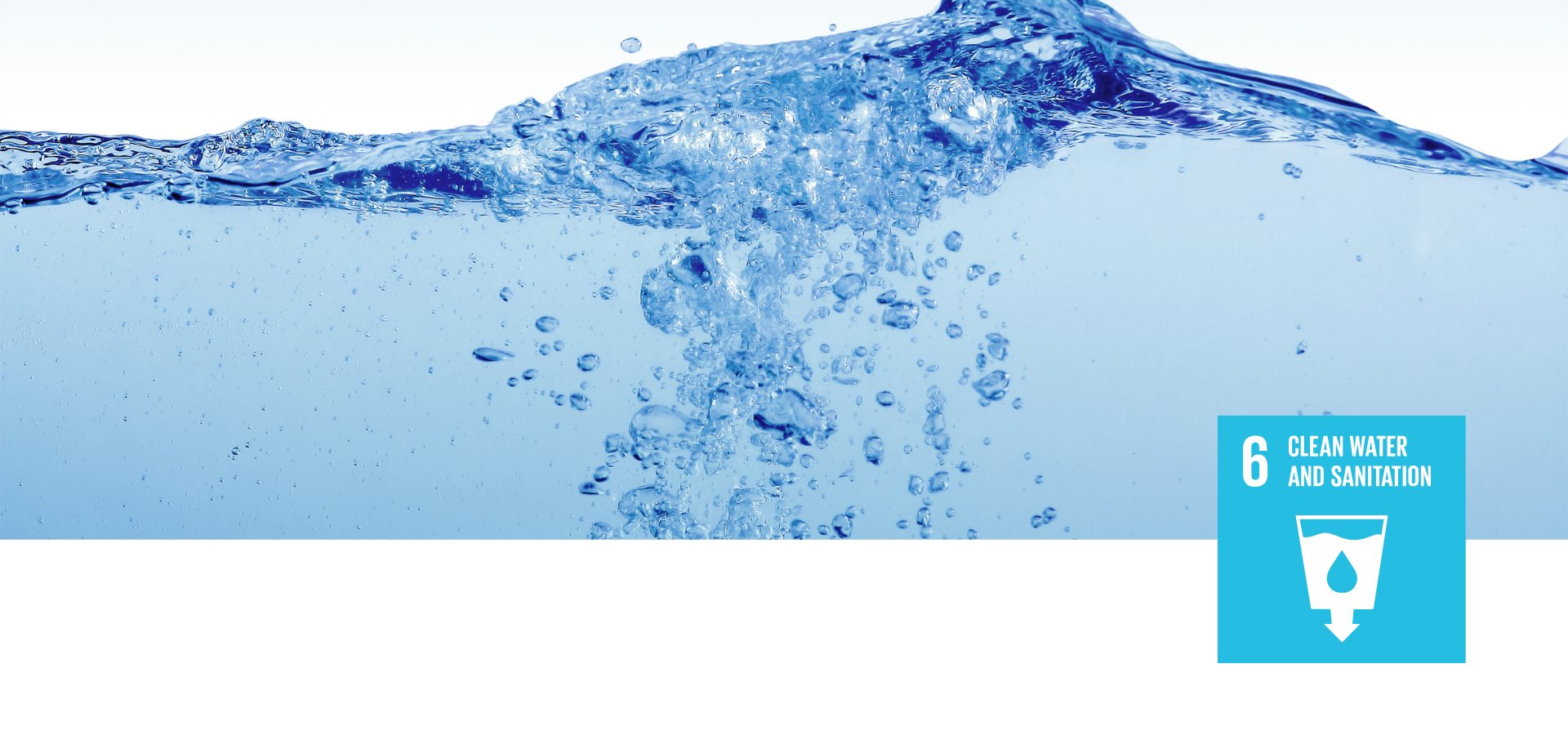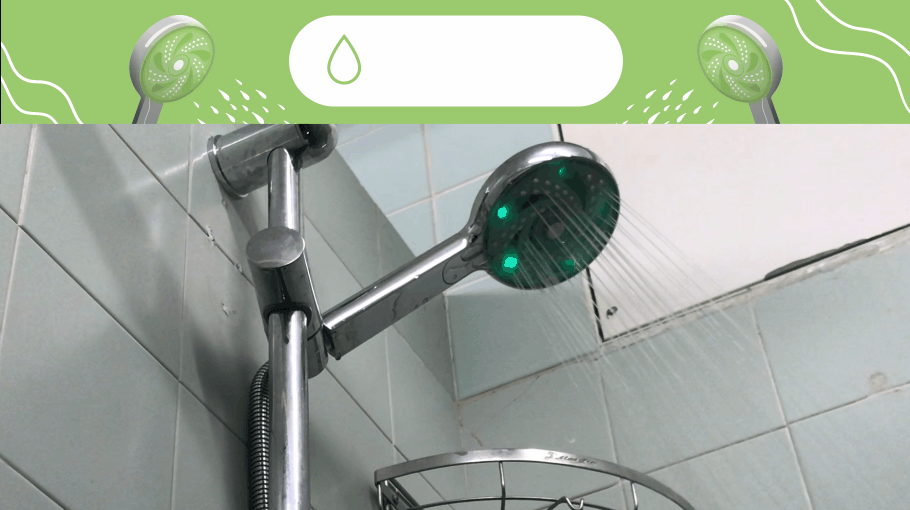
SDG 6: Clean Water and Sanitation
Through interdisciplinary research, education, and innovative initiatives, HKUST actively addresses water challenges and promotes responsible water usage. We include a comprehensive curriculum and encourage extensive research on water technology and resource management. We also implement sustainable practices on campus, prioritize the provision of clean drinking water, and launched various water conservation initiatives.
Curriculum
68 related courses were offered in the 2023-24 academic year.
Research
According to Science Direct, from 2020 to 2024, HKUST published 448 research papers addressing SDG 6.
22.54% of them are in the top 10% cite score and 73.1% are internationally co-authored.
Research Highlights
Autonomous Greywater Treatment
Researchers from HKUST developed a miniaturized wastewater treatment plant that effectively removes pollutants and disinfect the reclaimed effluent in greywater. The Autonomous Greywater Treatment is remote-controllable by the developed mobile application via Arduino controller board, with a machine learning algorithm implemented to study the habit of freshwater consumption and optimize the purification process. By reclaiming greywater from HKUST facilities, water consumption will significantly reduce, and the collected data can be used for analytics to learn habits of water consumption.
Smart Water Network @HKUST
The Smart Water Network @HKUST provides the first implementation of time reversal (TR)-based diagnostic method in a real urban water supply system (UWSS) and develops a remote and automated monitoring system to control it.
This method will accurately and efficiently localize and characterize defects, which will lead to saving water, energy, and pipeline infrastructure, and reducing water footprint.
Policy
Prevention of Water Contamination
HKUST has strict regulations on the disposal of hazardous materials and liquid effluent. The Disposal of Hazardous Materials and Items under Regulatory Control stated our strict regulations for the disposal of hazardous materials such as chemical, radioactive, and biological wastes. In terms of Liquid Effluent, HKUST follows environmental standards set by the Environmental Protection Department, conducts regular monitoring and analysis, and prohibits the disposal of hazardous materials into the sewer system. These Guidelines aims to protect water resources and the environment, and prevent contaminations from entering water bodies, safeguarding water quality, ensuring access to clean water and sanitation for everyone.
Water Discharge Guidelines & Standards
HKUST prioritizes protecting and enhancing water quality in our surrounding environment to safeguard ecosystems and the health and well-being of people and communities. The Water Discharge Guidelines & Standards by the university enforces stringent hazardous waste controls, allowing only neutralized pH 6-10 substances in wastewater, while conducting regular monitoring and chemical analysis. Construction runoff is minimized, and catering outlets must use eco-certified cleaning products to ensure responsible water stewardship for ecosystem and community health.
Watershed Management Strategy
Stormwater drains discharge directly into the nearest body of water without treatment. Therefore, proper management and care are crucial for protecting surrounding watersheds. HKUST has implemented several watershed management initiatives to control pollutant contributions from both stormwater and non-stormwater discharges. These efforts aim to safeguard the watersheds affected by the university's operations. The Watershed Management Strategy efforts are integral to HKUST's comprehensive approach to environmental stewardship.
Collaborations
CLIMATE, WEATHER AND WATER FORUM 2024
HKUST’s collaboration with the Climate, Weather, and Water Forum (CWWF) directly fosters interdisciplinary dialogue and action on critical water-related challenges. Through this partnership, the university engages with scientists, policymakers, and industry leaders to address water scarcity, sustainable resource management, and climate resilience. By facilitating knowledge exchange and innovative solutions, HKUST and CWWF contribute to ensuring water security, improving water quality, and advancing integrated water resource management.
SMART Urban Water Supply Systems (SMART UWSS)
HKUST's flagship Urban Water Supply Systems (UWSS) program, launched in collaboration with the Hong Kong Water Supplies Department (WSD), is a comprehensive research initiative that underscores the university's dedication to off-campus water conservation by tackling crucial issues like water leakage, pipe failures, and inefficiencies in complex underground networks. HKUST is pioneering advanced technologies to create a "Smart UWSS" that accurately detects leaks, blockages, and weak pipes. This aligns with Hong Kong's WIN vision, promoting sustainable urban development through water conservation. HKUST's locally developed innovations are leading off-campus water conservation efforts in Hong Kong, potentially influencing global urban water management.
Water Facilities
Free Drinking Water for Students, Staff and Visitors
HKUST takes pride in its clean and safe drinking water supply, backed by government monitoring and adherence to international guidelines. With over 150 water fountains equipped with filters and UV disinfection systems across the campus, the university ensures the best quality water for its community. HKUST conducts regular monitoring and testing, maintenance and upgrading of the fountains.
Smart Showerheads as an Eco-friendly Shower Hack
To help conserve precious natural resource, HKUST has recently launched a new Water Conservation Initiative (WCI) and installed 85 smart showerheads in two halls of residence. The pilot project’s aim is to encourage the halls’ undergraduate residents to make conservative use of water to shower as they are more aware of their water consumption.

Cutting water consumption to as little as 6.6L per minute, the showerheads’design is extremely water-efficient. The quoted figure is roughly 26% less than conventional shower units rated Grade 1 by the Hong Kong Water Supplies Department's Water Efficiency Labelling Scheme.
Data
Recording and Processing Water Data
HKUST is committed to limit potable water consumption to less than 500,000 cubic meters by 2028, a bold challenge due to the growth in our campus buildings and population. The university has taken actions to track water consumption, specifically potable water supplied, while also applying conservative measures by using seawater from the Clear water Bay. The performance data tracked is shared on the Water Performance website.
Operation
Catering Services Water Consumption
Caterers are the second largest water consumers at the University. Water is primarily used for thawing frozen meat by directly flushing it for several hours.
To reduce avoidable water consumption, the University has tested a pump system to aerate the water sink. Results indicate that with the pump system, caterers can use 33.3% less potable water per thawing process to achieve the same thawing results. Alternatively, caterers may employ the refrigerator thawing method, which takes longer but eliminates water use for thawing.
HKUST Institute for the Environment
The Institute for the Environment (IENV) at HKUST focuses on water technology and resource management to address pressing issues related to water resources in Hong Kong, the Pearl River Delta region, and Mainland China. IENV conducts interdisciplinary research to develop innovative solutions in areas like water and wastewater treatment technology, urban water resource management, micro-pollutant control, and the effects of rainwater and flooding on natural environments. The institute aims to contribute to sustainable development by advancing water technology and sound resource management practices. The research conducted by IENV has the potential for significant local and global impact in addressing water-related environmental challenges.